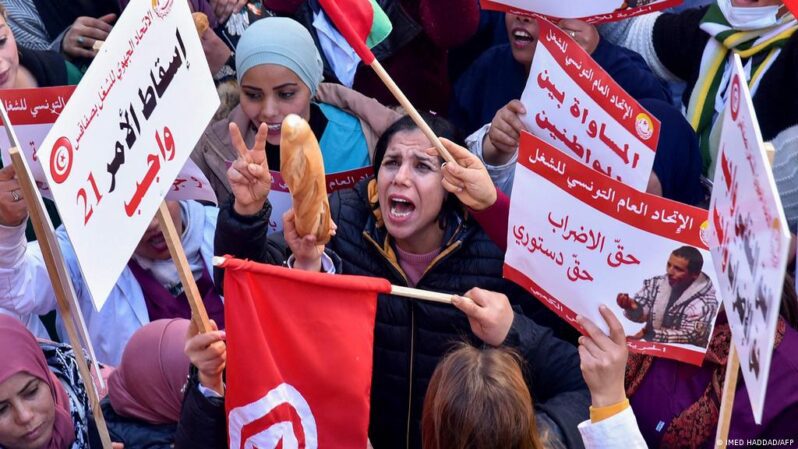Tunisian Court Defends Advocacy of Homosexual Rights

On 17 May 2019, the Tunis Court of Appeal issued a ruling that enshrines the right to establish an association to advocate for the rights and human dignity of homosexuals and sexual minorities, particularly their right to non-discrimination based on sexual orientation. This ruling was issued in the appeal stage of the case submitted by the officer-in-charge of state litigation against Shams the Aassociation Shams. The aim of the lawsuit was to suspend the activities of the association for deviating from its objectives and committing several violations, most prominently “encouraging the adoption of homosexuals’ stands and serving their whims”. In 2019, the officer-in-charge of state litigation appealed the ruling of the Court of First Instance in Tunis issued on 23 February 2016.[1] The appeal was submitted after the court had revoked the petition to suspend the activities of Shams for 30 days for violating the provisions of Decree 85/2011 on Associations. The appeal case ended with the ratification of the preliminary ruling and dismissal of the appeal against it.
This ruling is a new testament to the evolution of judges’ roles in the protection of rights and freedoms in the following ways:
1- The Definition of Sexual Minorities
While the objectives of Shams – according to its statute – included defending “sexual minorities”, the officer-in-charge of state litigation considered that the association had deviated from its objectives and turned to advocating for homosexuals. When Shams responded that sexual minorities necessarily include homosexuals, the Court of Appeal was compelled to search for a definition of “sexual minorities” in the absence of a Tunisian text on the matter. To this end, the court resorted to the Yogyakarta Principles and the Declaration of Montreal on sexual minorities’ human rights. These two documents complement the main international conventions, notably the Universal Declaration of Human Rights, the International Covenant on Civil and Political Rights, the International Covenant on Economic, Social and Cultural Rights, and the European Convention on Human Rights. After examining these texts, the court concluded that the term “sexual minorities” includes “any sexual affinity between two parties that is beyond the natural norm (female and male)”. although the word “natural” is a translation of the French term “groupe dominant”, i.e. the majority. This is a broad definition because it encompasses different identities, orientations, and sexual practices. This would widen the circle of sexual minorities to include all persons with a non-heterosexual orientation such as gay, lesbian, bisexual, transgender, and gender affirmed individuals.
2- Referring to International Sources, Including Those Not Ratified by Tunisia
As mentioned earlier, the court referred to a wide range of direct and indirect sources to confirm the concept of sexual minorities. This approach is consistent with Article 20 of the Constitution which makes international conventions take precedence over the law. This would also result in the strengthening and completion of the human rights system and modification of what is no longer compatible with these charters.
The court not only referred to the international human rights law ratified by Tunisia, but also to a number of other documents, most prominently the European Convention on Human Rights, the Yogyakarta Principles and the Declaration of Montreal – all of which are not endorsed by Tunisia. While the court did not state that it would invoke these conventions, they are noticeably drawn upon with regard to defining sexual minorities. The definition the court adopted was based on a range of international and regional documents, including universal declarations such as the Yogyakarta Principles of 2006, which were set out by a group of human rights experts on the implementation of international laws in the field of human rights law regarding sexual orientation and gender identity. The definition adopted by the court was also based on the 2006 Declaration of Montreal on the rights of persons with different sexual orientations and identities, issued by non-governmental organizations, notably the Global LGBT Human Rights Organization.
This multi-source confirmation on the recognition of sexual minorities reflects the court's wish to show that the international human rights system of governmental and non-governmental organizations has recognized the existence of various sexual minorities. That system has also recognized their enjoyment of human rights, primarily the principle of non-discrimination.
3- Opening the Door to Adopting Regulations for Sexual Minorities
Although the court did not go as far as adopting a comprehensive regulation for sexual minorities’ rights, it did indirectly make a move in this direction by emphasizing some aspects of these rights. The court's adoption of the Declaration of Montreal and the Yogyakarta Principles not only aimed to define the concept of “sexual minorities” but also to endorse the international tendency towards the recognition of sexual minorities’ enjoyment of all human rights without discrimination. The purpose of the Principles and the Declaration is to set out a comprehensive legal system for these groups that are different from prevalent or dominant communities. However, in order to stick to what was presented to it, the court only addressed certain aspects of these rights, particularly defending and protecting sexual minorities, eliminating discrimination against them, and defending their dignity.
4- Legitimacy and Legal Implications of Defending Homosexuals
The officer-in-charge of state litigation stated that defending homosexuals’ rights (an approach adopted by Shams) violates Article 230 of the Penal Code which criminalizes same-sex relations. Additionally, such relations are against Islam, social values, and it encourage the adoption of homosexual opinions and serves their whims.
In response to this allegation, the court did find that “defending homosexuals is a clear and direct objective of Association Shams, as established in the provisions of its rules of procedure, and that repealing Article 230 of the Penal Code (under which homosexuality is punishable with a 3 -year prison termimprisonment of up to three years) is mandated by its statute.” But the court also found that there is no evidence “that the association engaged in activities that encourage perverse sexual practices”. Additionally, it had not been established – whether directly or indirectly – that the association “adopted suspicious sexual concepts and sought to spread them in public in one way or another”. Accordingly, the court concluded that Shams aims, through its work on sexual minorities, to “preserve human dignity and prevent aggression for having different sexual orientations”. It also concluded that Shams “did not violate internal laws, especially the basic principles set out in the Tunisian Constitution, as stated in Article 3 of the Decree on Associations”.
While this ruling is particularly important in relation to the freedom of association and expression, taking a closer look at it raises the question of whether the court’s position indirectly recognizes the unconstitutionality of the criminalization of homosexuality.
The Court of Appeal did not explicitly make such a recognition, given that the Constitution prohibits it from monitoring the constitutionality of laws (Article 148). Moreover, the court established its position to dismiss the case on the distinction between demanding amendment of the law (calling for abolition of Article 230) and encouraging its violation. However, the fact that the court considered repealing Article 230 as synonymous with “the preservation of human dignity and the prevention of aggression based on sexual orientations” is clear recognition that Article 230 is an unjustifiable infringement upon human dignity.
This article is an edited translation from Arabic.
Keywords: Tunisia, Article 230, Sexual Minorities, Shams Association
_________________________________________________
[1] Court ruling provided by the President of Shams Mounir Baatour.



